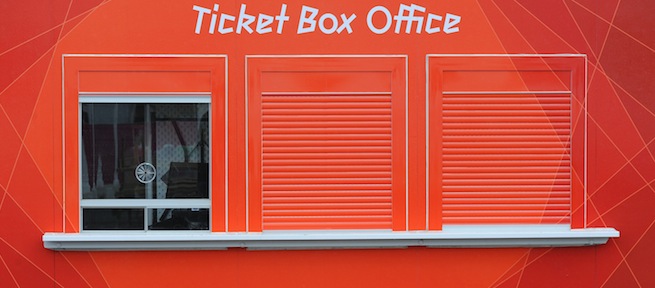The IOC’s ticket to trouble
Olympic officials are unwilling or unable to fight the black market for Games tickets. So the coppers are waging war for them.
at Olympic Park on July 18, 2012 in London, England.
Share
 It’s hard to imagine a surer invitation to scalpers, scammers and profiteers than the IOC’s system of distributing Olympic tickets. Many go to corporate sponsors, who then set about arranging junkets for clients and employees. More go to national Olympic committees in participating countries, to be sold by hand-picked agencies.
It’s hard to imagine a surer invitation to scalpers, scammers and profiteers than the IOC’s system of distributing Olympic tickets. Many go to corporate sponsors, who then set about arranging junkets for clients and employees. More go to national Olympic committees in participating countries, to be sold by hand-picked agencies.
Let’s say a country such as China receives more tickets than it’s able to sell. Or that a company can’t find enough takers for its allotment. What would happen to the coveted tickets then?
Naturally, they find their way to the open market. The trouble for the IOC is, it’s a market over which they have no control.
Yesterday, Scotland Yard confirmed it is investigating illegal sales of tickets by agents here who actually represent the national Olympic committees of China, Lithuania and Serbia. These are supposed to be the honest brokers, but if police suspicions are founded, they’ve been peddling the tickets to dishonest brokers.
It’s a variation on black-market ticket stories that popped up in Vancouver, as well as Beijing, where duped buyers showed up to find their tickets were no good because the local organizing committee refused to honour them.
The London version appears to run deeper than just the three countries under police investigation. Agents in as many as 54 countries could be involved, according to a recent investigation by the Sunday Times. About a month ago, the paper caught the head of Greece’s Olympic committee, Spiros Capralos, boasting that he’d finagled an extra batch of tickets for his country—only to find official agents had been unable to unload them in the recession-ravaged nation.
So they were sold outside Greece at a handsome profit, and it might have been a mere fraction of the money going to ticket profiteers. In Israel and Cyprus, blocs of 525 tickets could reportedly be had in June for about $200 per pass, well above face value.
The IOC announced an investigation. Yet the ticket touts are here in force. Since the opening day of the Games, Scotland Yard has arrested 16 people, including two people caught just before the opening ceremony.
Attached though the IOC is to corporate backers and its network of local Olympic potentates, one wonders whether the IOC’s allotment method might be improved—say, through a central international agency, which could take over the task of electronic sales of tickets once the IOC brokers requests from individual countries, and rewards its sponsors.
We wouldn’t, after all, want anyone thinking that corruption exists within this venerable and high-minded international movement.